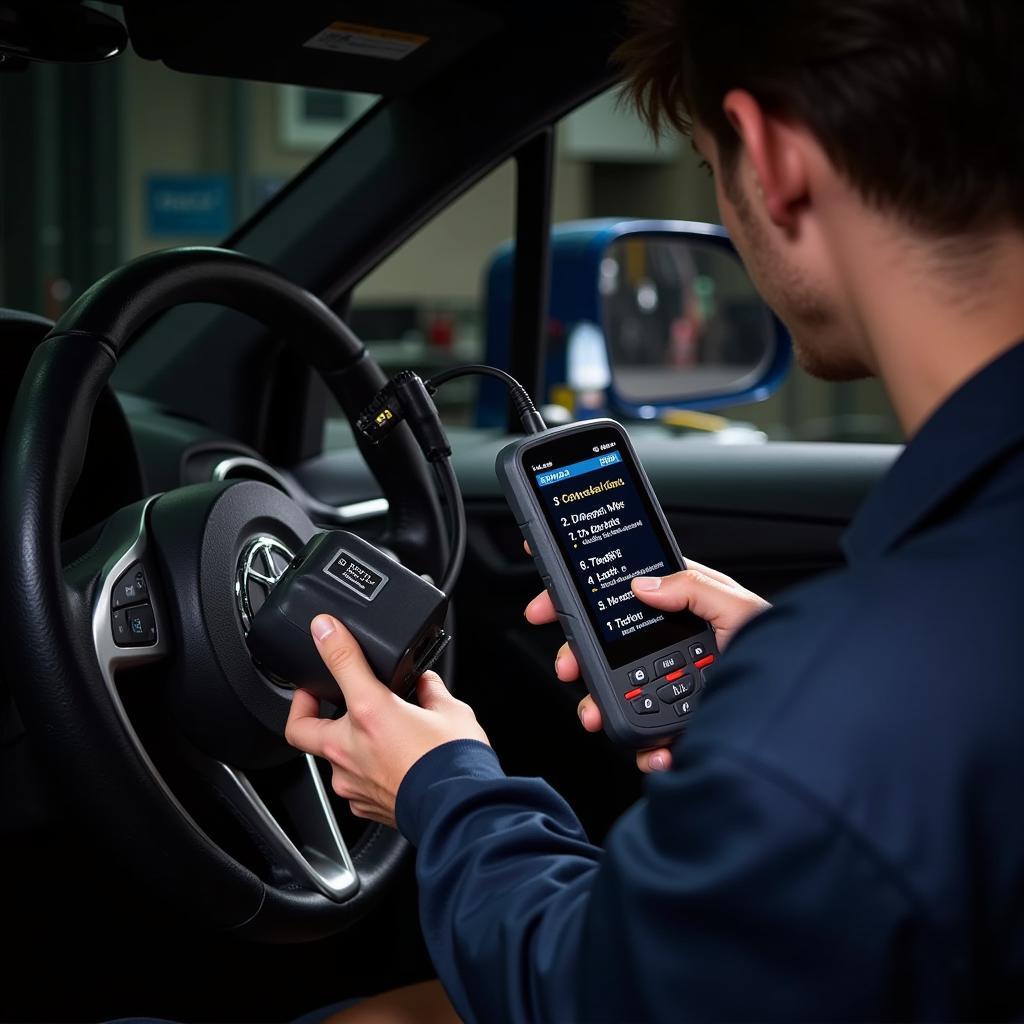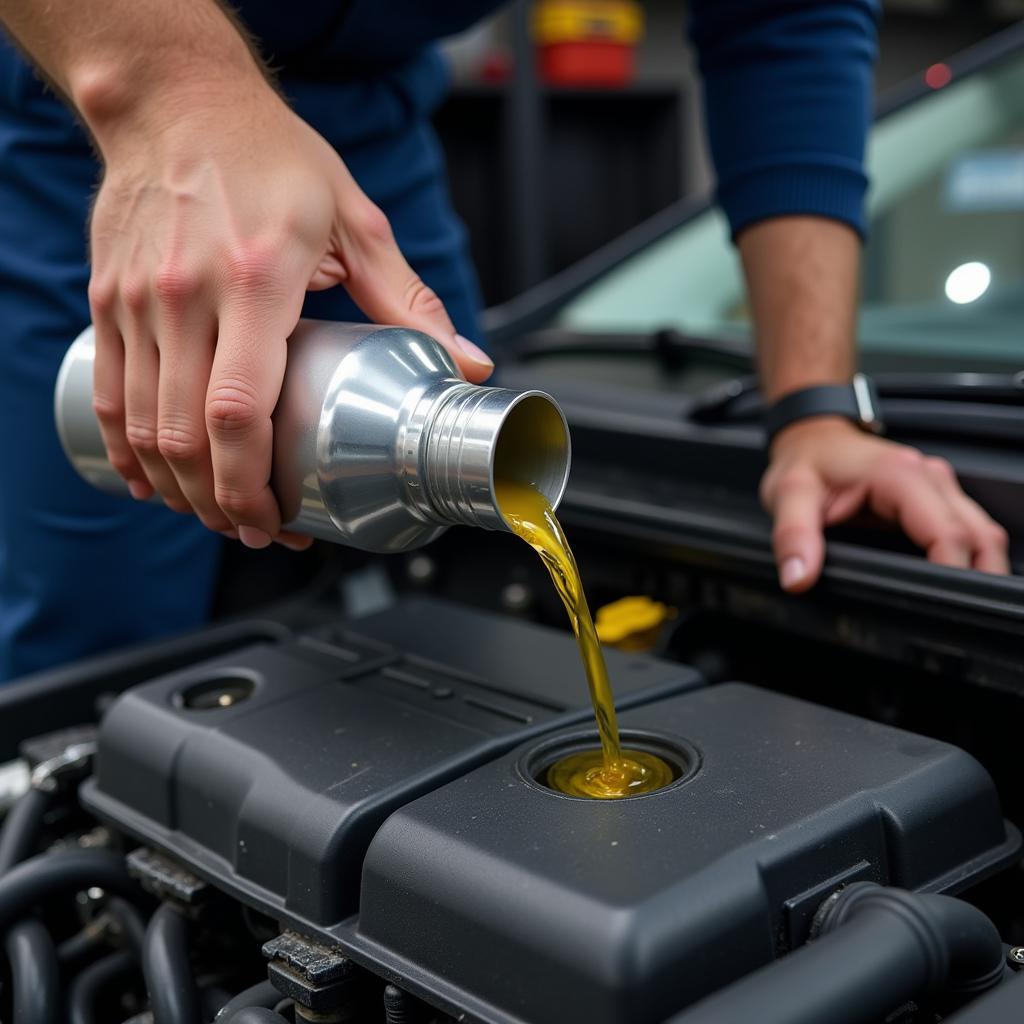Car troubles are a part of life, but some issues are more frustrating than others, especially those Car Problems That Take Awhile To Fix. These can range from seemingly simple electrical gremlins to complex mechanical failures, leaving you without reliable transportation and potentially impacting your wallet. Understanding these time-consuming repairs can help you manage expectations, budget accordingly, and potentially even avoid them altogether.
Identifying Time-Consuming Car Problems
Several factors contribute to extended repair times. Sometimes, it’s the complexity of the issue itself. Other times, it’s the difficulty in diagnosing the problem. Parts availability also plays a crucial role, as some components may need to be ordered from overseas or custom-fabricated. Finally, specialized tools or expertise might be required, adding further delays.
Common Culprits: Car Problems That Require Extensive Repair Time
Some common car problems that take awhile to fix include transmission rebuilds, engine overhauls, electrical system diagnoses, and bodywork repairs after significant collisions. These repairs often require specialized tools, expertise, and significant disassembly of the vehicle.
- Transmission Problems: Transmission issues are notorious for being both complex and time-consuming. Whether it’s a complete rebuild or replacing specific internal components, these repairs often require the transmission to be removed from the vehicle, disassembled, and meticulously inspected.
- Engine Overhauls: An engine overhaul is a major undertaking, often involving a complete teardown and rebuild of the engine. This can take days or even weeks, depending on the extent of the damage and the availability of parts.
- Electrical System Diagnoses: Electrical problems can be notoriously difficult to diagnose. Tracking down the source of a short circuit or faulty sensor can involve hours of testing and troubleshooting, especially in modern vehicles with complex wiring harnesses and electronic control units.
- Bodywork After Collisions: Extensive body damage requires significant time to repair. The process involves straightening bent metal, replacing damaged panels, and meticulously matching the paint color.
Diagnosing Difficult Car Problems
Diagnosing a car problem that takes awhile to fix often starts with a thorough visual inspection. Mechanics will check for obvious signs of damage or wear and tear. Next, they’ll use diagnostic tools to scan for error codes and monitor sensor readings. Sometimes, a test drive is necessary to replicate the problem and gather more information.
 Diagnosing Car Problems with Specialized Tools
Diagnosing Car Problems with Specialized Tools
Managing Expectations and Minimizing Downtime
Understanding that certain car problems inherently take time to fix can help you manage your expectations and minimize the disruption to your routine. Be sure to ask your mechanic for a realistic timeframe for the repair and stay in communication throughout the process. This open communication can alleviate frustration and keep you informed of any unexpected delays.
Questions to Ask Your Mechanic
- What is the estimated repair time?
- Are there any potential delays due to parts availability?
- What is the total cost of the repair, including parts and labor?
- What is the warranty on the repair?
Preventing Time-Consuming Car Problems
While not all car problems are preventable, regular maintenance and proactive repairs can significantly reduce the risk of encountering major issues. Following the manufacturer’s recommended maintenance schedule is essential, including regular oil changes, fluid top-offs, and inspections. Addressing minor issues promptly can prevent them from escalating into more serious and time-consuming problems.
“Regular maintenance is the key to avoiding costly and time-consuming repairs down the road,” says John Smith, a seasoned automotive technician with over 20 years of experience. “It’s much cheaper to replace a worn-out part than to rebuild an entire system.”
Conclusion
Car problems that take awhile to fix are an unfortunate reality of car ownership. However, understanding the factors contributing to extended repair times, asking the right questions, and prioritizing preventative maintenance can help you navigate these situations more effectively. Remember, transparency and communication with your mechanic are essential. Don’t hesitate to contact us at AutoTipPro for assistance. Our phone number is +1 (641) 206-8880 and our office is located at 500 N St Mary’s St, San Antonio, TX 78205, United States.
 Preventative Car Maintenance: Oil Change
Preventative Car Maintenance: Oil Change
FAQ
- What are some signs of transmission problems? Slipping gears, rough shifting, and unusual noises are common indicators.
- How often should I get an oil change? Refer to your owner’s manual for the recommended interval, but typically every 5,000-7,500 miles.
- Can I drive my car with a check engine light on? It depends on the severity of the issue. It’s best to have it checked by a mechanic as soon as possible.
- How much does an engine overhaul typically cost? The cost varies depending on the make and model of the car, but it can range from several thousand dollars to upwards of ten thousand dollars.
- What should I do if my car breaks down unexpectedly? Pull over to a safe location, turn on your hazard lights, and call for roadside assistance.
- How can I find a reputable mechanic? Ask for recommendations from friends and family, check online reviews, and look for certifications like ASE (Automotive Service Excellence).
- What are some common electrical problems in cars? Faulty batteries, alternators, starters, and sensors are common culprits.







Leave a Reply